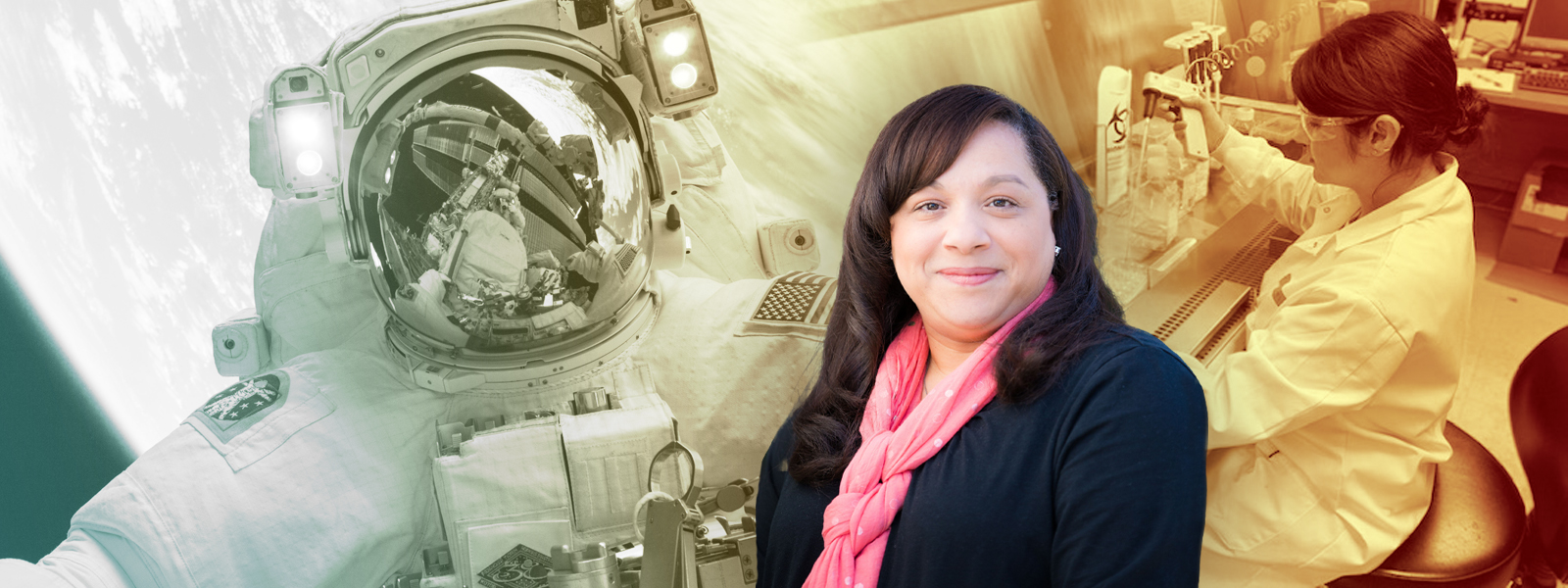With its Mars Exploration Program, NASA has set its sights on landing a human on the red planet by the end of the 2030s. While that might seem far away, researchers like Josephine Allen, Ph.D., Genzyme Professor of Materials Science & Engineering and associate professor are already hard at work studying how to protect the astronauts’ health for the estimated 21-month, 185-million-mile journey into deep space – and back.
Dr. Allen is not new to space health research, having already sent cells to the International Space Station in 2019 as part of a study on space’s effects on vascular cells and its link to cardiovascular disease. But in her time researching how micro-gravity and space radiation affect the human body, she also saw something familiar: very few faces who looked like hers.
“As an active member of the space biology community, I see first-hand the lack of diversity within the space health research field,” Dr. Allen said. “For almost the entirety of my career, I have been one of very few underrepresented minority (URM) scientists in the room. My team and I wanted to change this dynamic, so when an opportunity arose to develop a diversity program and partner with the Translational Research Institute for Space Health (TRISH) to help make it happen, we were extremely excited to submit our proposal.”
Dr. Allen viewed this as an opportunity to establish a program that she, as a URM scientist, would want to participate in.
“We filled it with program elements that I wished I had when I was just starting my career in space biology,” she said. “This really is an opportunity for us to ‘open the door’ for those interested in working in space health research but not quite sure how to get started.”
For someone new to working with NASA, TRISH, or new to space health research, the most significant barrier is a lack of knowledge on navigating this arena properly. With that in mind, Dr. Allen’s team designed their program to help guide participants through the first steps to launching their new space health research programs in their own labs.
“We were very intentional about the program elements we included. We know the importance of mentorship, so we included one-on-one mentorship from an established investigator in space health research,” Dr. Allen said. “Equally important is integrating these new investigators into the space health research community, so we included an opportunity for conference attendance with their mentor who can serve as a bridge to networking within the community.”
With lack of funding for URM scientists already an issue, navigating the different portals for grant submission and identifying opportunities for space health research funding and focus areas takes experience and can present an entry barrier into the field. With that in mind, Dr. Allen and her team also organized a three-day “Foundations of Funding” workshop to demystify the funding process and further support participants in submitting and ultimately receiving funds to launch their research into space health.
“The more we include diverse researchers, their vision, their voice and their scientific contributions,” Dr. Allen said, “the more significant the innovations and advancements we can expect to emerge from the space health research field. I am grateful for my team, who see the same challenges and have the same vision, and I am thankful for the support from TRISH.”
